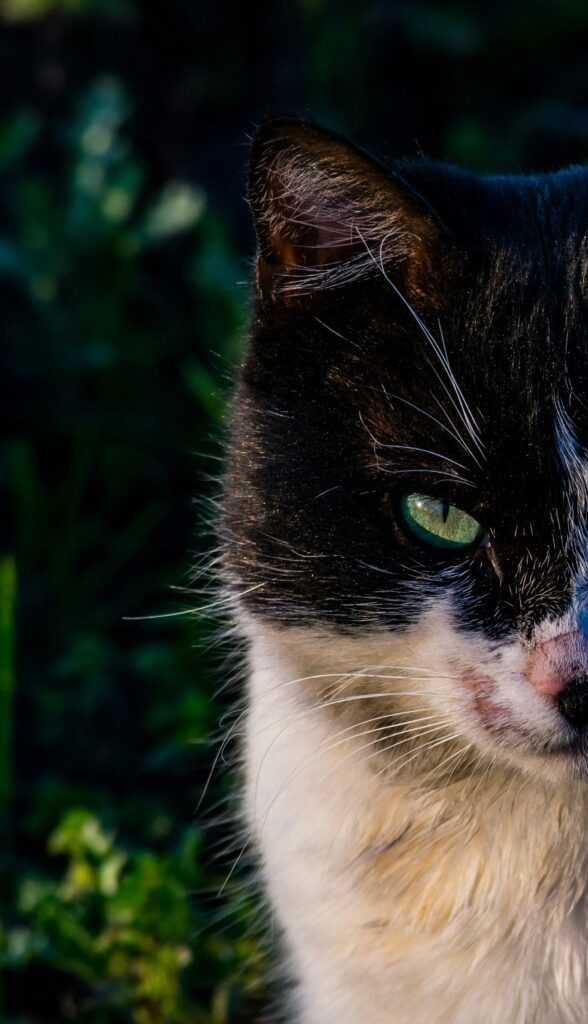Introduction to the Animal Kingdom
Welcome to the fascinating world of animals, where furry friends and feathery creatures captivate our hearts and minds. From the majestic lions roaming the savannah to the playful dolphins dancing in the ocean waves, every creature has a unique story to tell. Join us on a wild adventure as we explore the diverse animal kingdom, uncovering their characteristics, intelligence, and vital role in our ecosystem. Let’s dive deep into this enchanting realm where beauty meets biodiversity!
The Different Types of Animals and their Characteristics
When it comes to the animal kingdom, diversity reigns supreme. From mammals and birds to reptiles and amphibians, each group brings its own unique set of characteristics.
Mammals like lions and elephants are known for their warm-blooded nature, hair or fur covering their bodies, and the ability to nurse their young with milk. Birds, such as parrots and eagles, have feathers for flight and lay eggs rather than giving birth to live young.
Reptiles like snakes and turtles are cold-blooded creatures that rely on external heat sources to regulate their body temperature. Amphibians like frogs and salamanders typically start life in water before transitioning to land.
Each type of animal has adapted specific traits over time that help them thrive in their environments – a true testament to the wonders of evolution.
The Role of Animals in Our Ecosystem
From the depths of the oceans to the vastness of our forests, animals play a crucial role in maintaining balance within ecosystems. They are not just mere inhabitants but key players in intricate food chains and webs that keep nature thriving.
Predators regulate prey populations, preventing overgrazing or overpopulation of certain species. Herbivores aid in seed dispersal and vegetation control, shaping landscapes and promoting biodiversity. Even decomposers like insects and bacteria contribute to nutrient recycling by breaking down organic matter.
Birds pollinate flowers while some animals help control pests naturally without the need for harmful chemicals. From large mammals to tiny creatures, each has a part to play in sustaining life as we know it on Earth. Our understanding and appreciation of their roles can lead to better conservation efforts for a harmonious coexistence with all living beings.
Animal Intelligence: Myth or Reality?
Have you ever wondered about the intelligence of animals? The animal kingdom is full of surprises when it comes to cognitive abilities. From problem-solving skills in primates to communication strategies in dolphins, animals constantly challenge our preconceived notions.
Birds like crows and parrots have shown remarkable memory and reasoning capabilities. They can use tools, solve puzzles, and even mimic human speech! Octopuses are known for their advanced problem-solving skills and ability to adapt to new environments quickly.
Elephants display complex social behaviors, long-term memory retention, and emotional intelligence. They mourn their dead, show empathy towards others, and work together to overcome obstacles.
The more we study animals’ behavior and cognitive processes, the more we realize that their intelligence is not a myth but a fascinating reality waiting to be explored further.
Endangered Species and Conservation Efforts
The issue of endangered species is a pressing concern in today’s world. With habitat destruction, poaching, and climate change threatening the survival of various animals, conservation efforts are more crucial than ever before.
Many organizations and individuals are working tirelessly to protect and preserve these at-risk species through initiatives such as wildlife sanctuaries, breeding programs, and advocacy campaigns.
Conservation efforts not only focus on saving specific species but also play a vital role in maintaining biodiversity and ecological balance. By protecting endangered animals, we can help ensure the health and sustainability of our planet for future generations.
It is essential for each one of us to educate ourselves about the plight of endangered species and take action to support conservation projects. Every small contribution counts towards making a significant impact on the survival of these precious creatures.
Human-Animal Relationships and the Benefits of Pet Ownership
Having a furry companion by your side can bring immense joy and comfort to your life. From wagging tails to soothing purrs, pets have a unique way of making us feel loved and needed. Their unconditional love knows no bounds, creating a special bond that enriches our daily lives.
Pets are not just animals we care for; they become cherished members of our families. They teach us about responsibility, empathy, and the importance of nurturing relationships. The companionship they provide can help reduce stress, anxiety, and feelings of loneliness.
Taking care of a pet gives us a sense of purpose and routine. Whether it’s taking them for walks or cuddling on the couch, these simple moments strengthen our emotional well-being. Pets also encourage physical activity through playtime and outdoor adventures.
The benefits of pet ownership extend beyond personal satisfaction; studies show that interacting with animals can lower blood pressure, improve cardiovascular health, and boost immunity. Simply put, having a pet in your life can make you happier and healthier overall.
Appreciating and Respecting All Creatures Great and Small
Appreciating and Respecting All Creatures Great and Small is not just a moral obligation but a fundamental aspect of coexisting harmoniously with the diverse range of species that share this planet with us. By recognizing the value that each animal brings to our world, whether it be through their contributions to the ecosystem or simply by providing companionship and joy, we can cultivate a deeper sense of empathy and connection with all living beings.
As we continue to learn more about the intricacies of the animal kingdom, let us remember to treat every creature with kindness, compassion, and respect. Whether furry friends or feathery creatures, each one deserves our admiration and protection. Let’s strive to create a world where humans and animals can thrive together in harmony, appreciating the beauty and uniqueness that each species has to offer.
